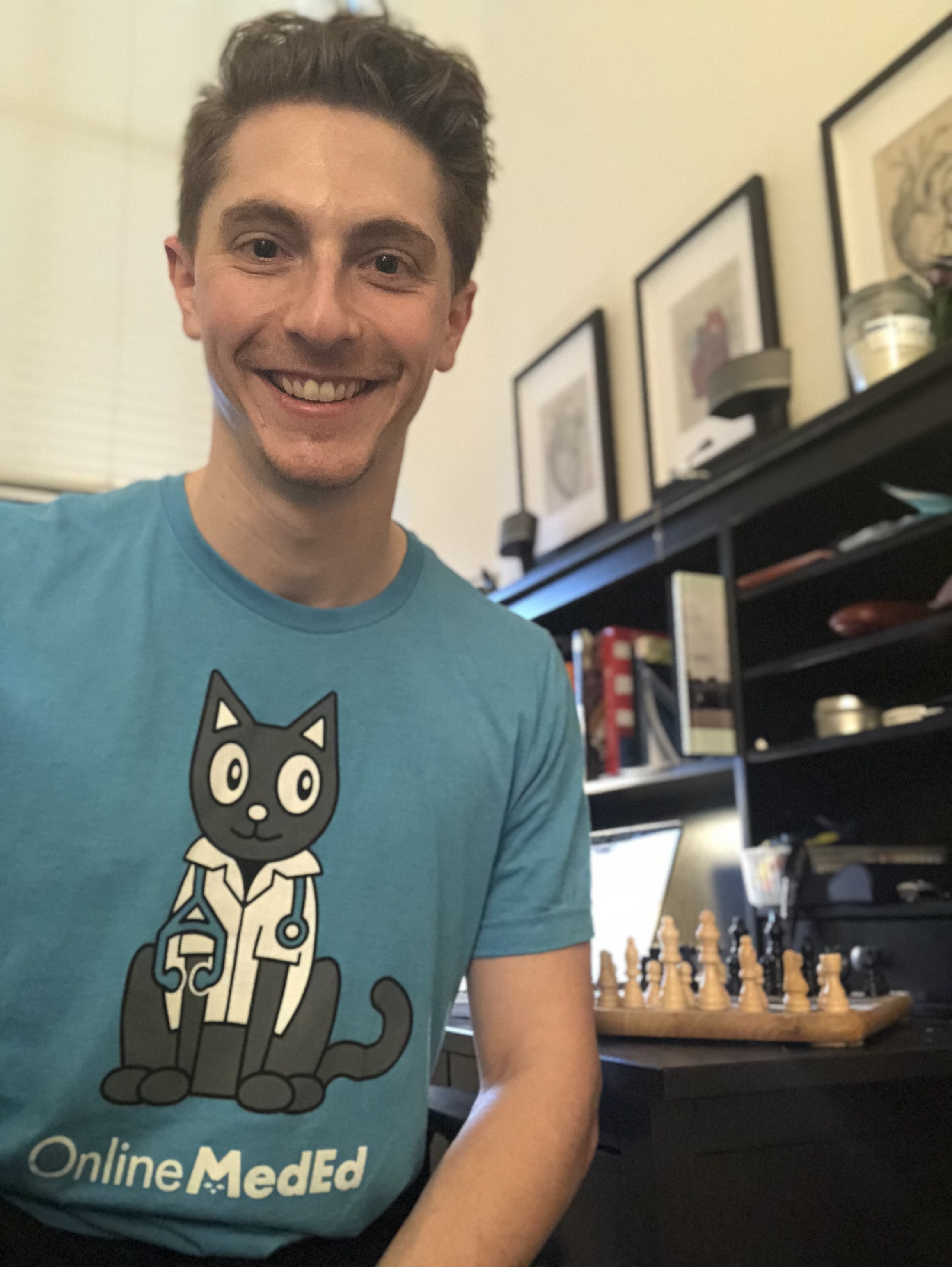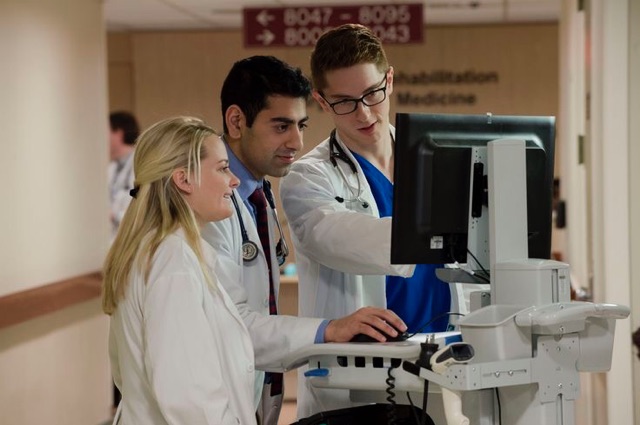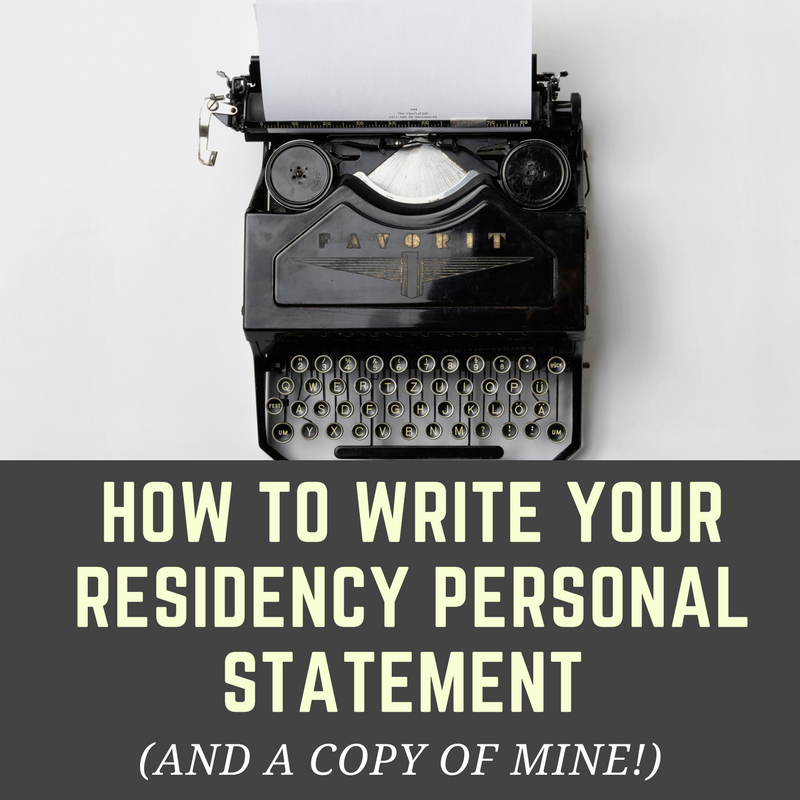Initially inspired by a blog post from LifeOfAMedStudent.com about how to write your residency personal statement I wanted to share a few tips and tricks on how to write a great personal statement. By no means is the following all inclusive as the complete scope of writing your personal statement is beyond just one blog post. But hopefully any of my followers from medical schools in the Caribbean, United States, or around the world wondering how to write a residency personal statement will have a little bit more guidance. Oh, and also a copy of mine. So here are a few pearls of wisdom about how to write your residency personal statement.
I’ve pushed this book before and I’ll do it again now because I truly feel that it was the best book to read when applying for residency with regard to understanding the process. It explicitly spells out objective data about the match based on surveys filled out by program directors. No hearsay. Just facts. It’s a big book but you don’t have to read it from cover to cover in one sitting. Snag a copy and peruse through it when you need it because it helps you during each step of the residency application process, including the personal statement.
Just stay par
Don’t let your personal statement harm your application. In my opinion, personal statements aren’t going to get you an interview that you wouldn’t have gotten otherwise. However, a really bad personal statement might kill your application like a shot of potassium to the heart. You want your personal statement to keep you par. So don’t use overly eloquent wording or try and reinvent the wheel. Be conservative and try to just hit onto the green. Don’t go for a whole-in-one.
You are applying for residency- not medical school or a fellowship
When you applied to medical school you were expected to draw on past experiences that made you want to be a doctor. This is not that time. We already know you want to be a doctor. They want to hear why you want to become a specific type of doctor. Write about why you want to go into your specific field. Additionally, don’t get ahead of yourself by writing about fellowship opportunities. Sure, you might only be going into internal medicine so you can become an interventional cardiologist. But you need to sell yourself on why you want this specific specialty right now. Just remember what job you are applying for.
Know your audience
Are you applying for orthopedics or pediatrics? Because I’m willing to bet that those personal statements are going to be quite different. Not because of the style of the essay but because of what attributes those essays will convey. Surgical residencies generally value ‘compulsive, high energy, confident, hardworking, committed’ applicants while pediatrics value ‘team players, well-organized, well-rounded, flexible, positive attitudes, and flexible’ applicants1. Organize your personal statement to convey attributes attractive to your respective specialty.
How to design your personal statement
Further detail of how to construct your personal statement is outside the scope of this blog post but let me give you the basic foundation. First you need a backbone. It’s that story you think of when people ask you why you went into medicine and it should be something that happened during your clinical rotations. You know, something you probably made a Facebook status or Instagram post about. Next, you need to think a about which attributes you want to put on display (i.e. what attributes do you have that your future specialty finds attractive). Then tie those attributes back into the backbone of your story to build the rest of your skeleton. Then close it off with a strong summary and don’t be shy to tell them what you want! Here’s an example of a rough outline:
- Paragraph 1: I have 3 attributes that make me an ideal candidate for this specialty. For instance, this one time…
- Paragraph 2: I demonstrated attribute number 1 when I did this
- Paragraph 3: Then I used attribute number 2 when I did that
- Paragraph 4: And then I displayed attribute number 3
- Paragraph 5: I want this specialty and attributes 1, 2, & 3 make me an ideal candidate for it.
Optional: in your closing paragraph tailor your personal statement to a specific program. I personally didn’t do this…but I also applied to way too many programs. My advise is to do this for one or two programs if you know with 100% certainty where you want to match. It can be exhausting and not worth the effort to do it for every single program.
Size matters
Make your personal statement one page. It will be visually appealing to the eye and will be short enough to keep the reader’s attention. Don’t forget that the program directors are reading hundreds of personal statements. You don’t want to bore them to death.
Make them want to meet you
Personal statements are the epitome of the humble-brag. You’re being asked to humbly tell a compelling story that paints you in a positive light. That doesn’t mean your personal statement has to be a bore. You want to make the reader want to meet you. You strike that balance with two main elements- (1) having a unique story and (2) the manner in which you tell it.
For instance, a goal I set in my personal statement was to paint a picture of a patient without sharing the underlying diagnosis. And just like clockwork every program director who brought up my personal statement during my interview asked me the same question, “what was the diagnosis?”. So write vividly about an impactful experience and make them want to meet you (even if they just want to know if they got the diagnosis correct).
Lastly, check out a copy of my personal statement from when I applied to internal medicine in 2015:
While screaming incoherently and sprinting off of her boarding flight my patient suddenly collapsed. She was immediately brought to the hospital where I was given the responsibility of her care. I remember her well because her case inspired me to pursue internal medicine as a career. I was intrigued by her unique presentation, motivated to understand the pathophysiology of her illness, and humbled by her family’s fears. My leadership experience and enthusiastic persona helped me overcome challenging scenarios while I provided quality care to my patient. Overall this experience cemented my decision to apply for an internal medicine residency, especially after my first day on her case.
My patient had been suffering from strange psychiatric manifestations, labile blood pressures, and recent-onset echolalia and athetosis. Walking into her room I immediately noticed her multiple family members at her bedside. My previous leadership experience had prepared me for this scenario. I had to communicate complex concepts that I intrinsically understood to individuals who saw it as alien. Although healing my patient’s illness was my paramount priority, I also had to effectively communicate my plan with her and her family in order to make sure that they felt that I heard their concerns and that they were safe in my care. I discussed my assessment and plan with my patient and her family while they peppered me with questions about her case. Their initially palpable anxiety began to abate as I answered each of their questions. It was heartwarming to have a positive impact on this family and showed me the value of possessing effective communication skills in building the patient-doctor relationship.
I left the room and a calm, focused tenacity propelled me to find an underlying cause. It was exciting to explore such a seemingly unrelated constellation of symptoms and it is one of the reasons why I enjoy the prospect of internal medicine. General internists have the opportunity to diagnose and treat patients with illnesses affecting them from head to toe. For my patient, every organ system was a potential culprit and I excitedly dissected each clue to find a potential suspect. Eventually though I found myself scratching the back of my head, staring blankly at the puzzling results of my patient’s lab work and sought help from more experienced minds.
Working with my resident and attending physician we were able to find the epicenter of my patient’s autoimmune battle. I took it upon myself to research the biochemical mechanism of her disease process and was happy to see that even my experienced attending physician was interested in learning about the disease pathophysiology. It showed me that every day in medicine is a school day because there is always something new to be learned no matter how much experience you have. After two months of medical management my patient was stable enough to fly and continue treatment at home. It was awesome to see the impact that treating patients medically can have on their quality of life and I look forward to learning the intricacies of the medical management of chronic illnesses during residency.
Ultimately, this case stroked my interest in internal medicine and illustrates why I will be a unique candidate for an internal medicine residency. My amazement at the body’s innate ability to harm and heal itself fuels my passion for understanding the underlying mechanism of disease and conversely of wellness. I am able to communicate in a clear and concise fashion with laypersons and medical professionals alike. Being a safe physician is a top priority of mine as well. Although I am confident in myself, part of being a safe physician is knowing your limits and asking for help when you need it, both of which are qualities that I possess. In the end, I’ve become cognizant of the fact that that the best way to practice medicine is to care for your patient, both physically and mentally. My unique perspective and skill set leave me with a strong foundation for future growth as a medical professional and I am excited to continue my medical education through an internal medicine residency.
1- Katta, Rajani, Samir P Desai, and Samir P Desai. The Successful Match. 1st ed. Houston, Tex.: MD2B, 2009. Print.



